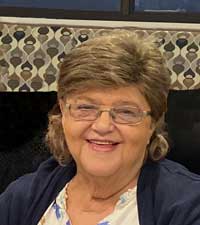(Chelsea Update would like to thank Chelsea Community Hospital and Dr. Barry Nemon, director of the Emergency Room, for the information in this column.)
We began to discuss the limits of our Electronic Medical Record (EMR) two weeks ago and I wanted to briefly mention some of the other limitations.
Patients will often have a medical intervention in another state or a different part of Michigan or even at a different hospital just a city away and expect that we would know exactly what happened, what tests were ordered, etc.
Our current system only allows us access to everything that happened at a Trinity Hospital. In our area, that means we can see everything that happened at Saint Joe’s, Saint Mary’s in Livonia, Saline Hospital, Livingston Hospital and at Chelsea.
Soon, we will also be able to know about visits to urgent cares that are part of the Saint Joe’s network, like Maple Medical.
What if Chelsea needs information from a hospital visit to Allegiance in Jackson?
In that case, we need to make a call and they will send over the record by fax. U-M is allowing us to access their records, but we have to enter their system through a different “sign-on”. This is really fabulous, but it does take extra time.
So why can’t we just interface seamlessly to the University’s EMR?
The University and the St. Joe’s System (including Chelsea) use a different EMR. We use software produced by Cerner; the University uses another software produced by a different company, called Epic. Having data flow seamlessly between the two products is something that could happen, but it is not there yet. Unfortunately, there is no “universal data base” in the clouds.
A “universal data base,” where I can know what happened on your last visit to Florida or your trip Up North in Petoskey, also is not there yet. Many patients expect that we will know about those visits when they see all the computers in our new ER.
We should know what happened last week in your doctor’s office here in Chelsea, right? No, that is also still not available yet. Doctor’s offices use different software as well.
All this information will eventually connect. But today, it does not.
We know that information that is accurate and widely available will help patients.
So far, national studies do not consistently show a benefit for using the EMR. I suspect that we will be seeing those benefits in the next few years as different electronic medical records speak to each other and become easier to use.
See you in two weeks when we’ll talk about some typical summer first aid issues.
Stay Well, Dr. Barry Nemon.












